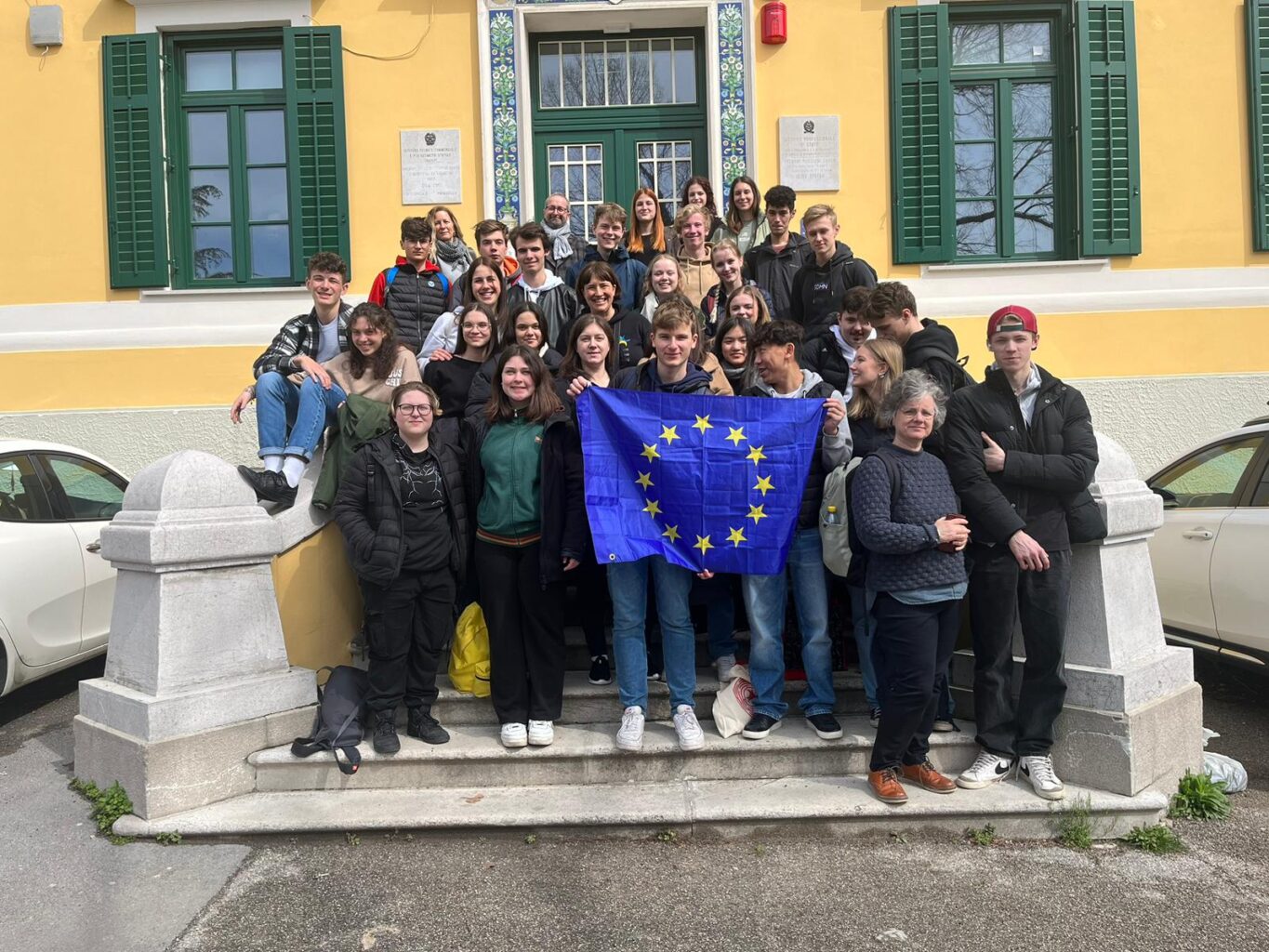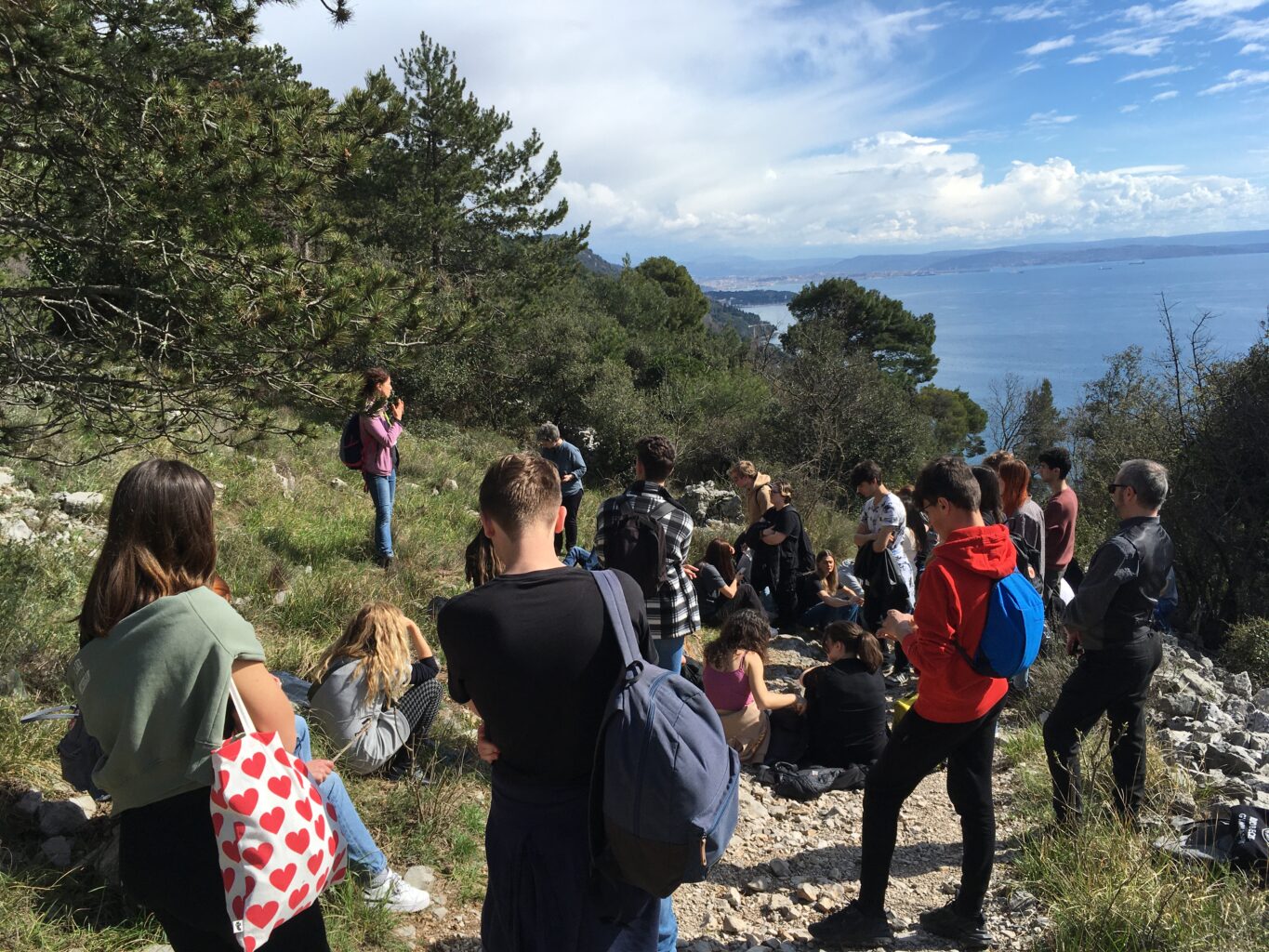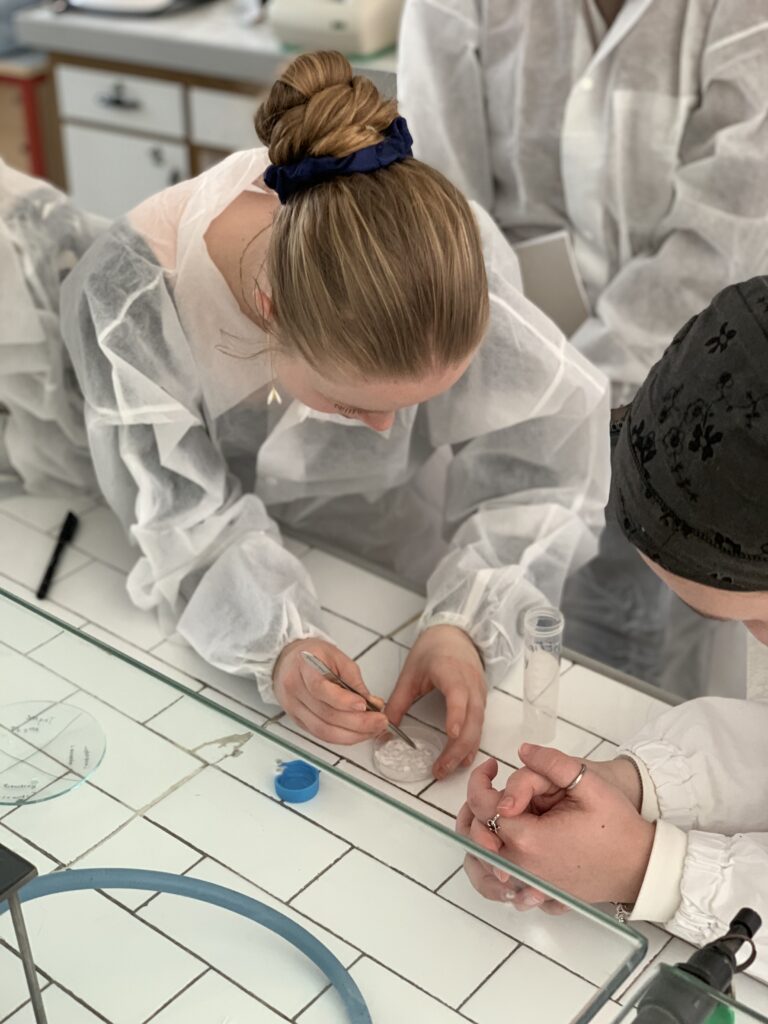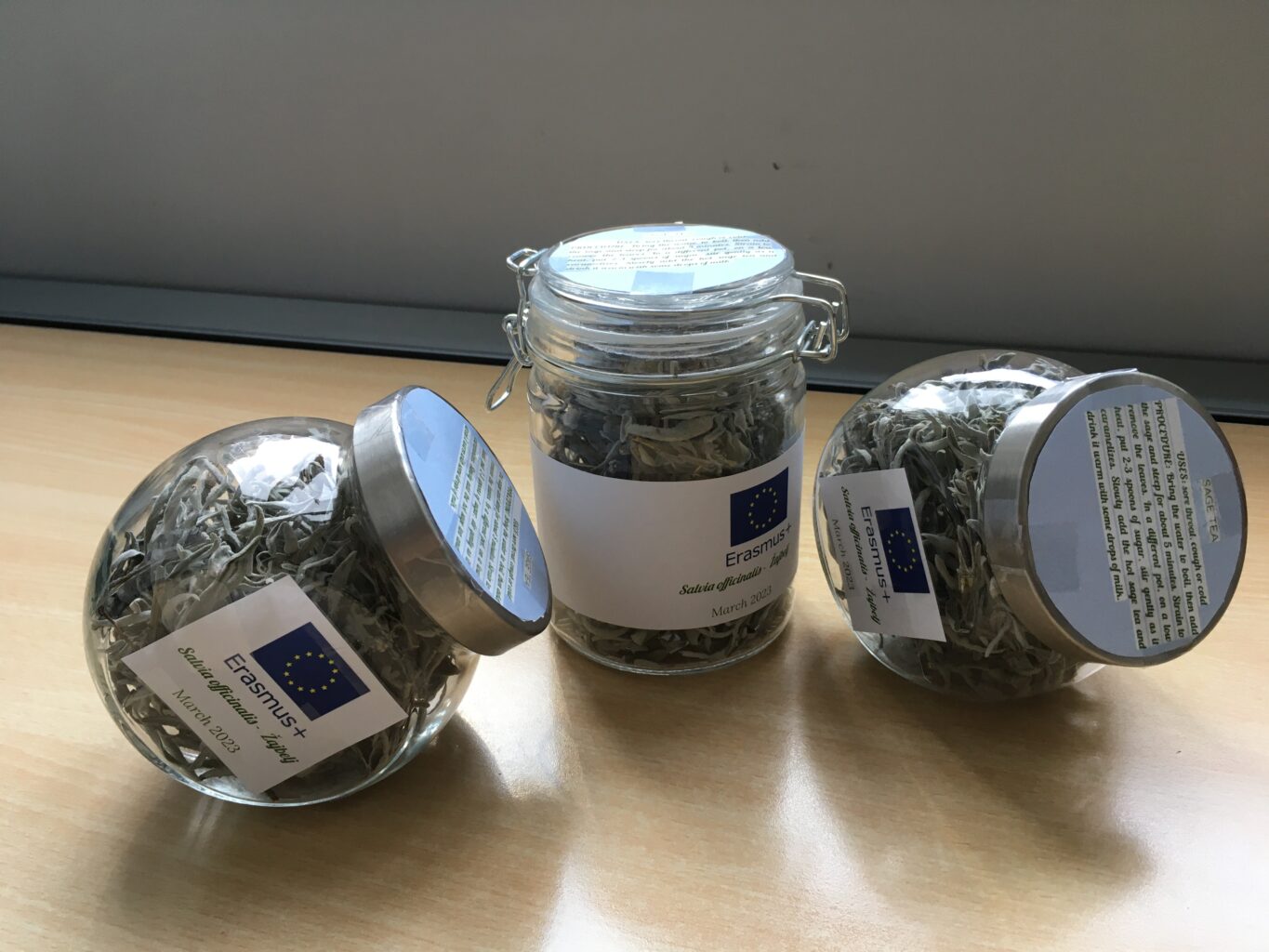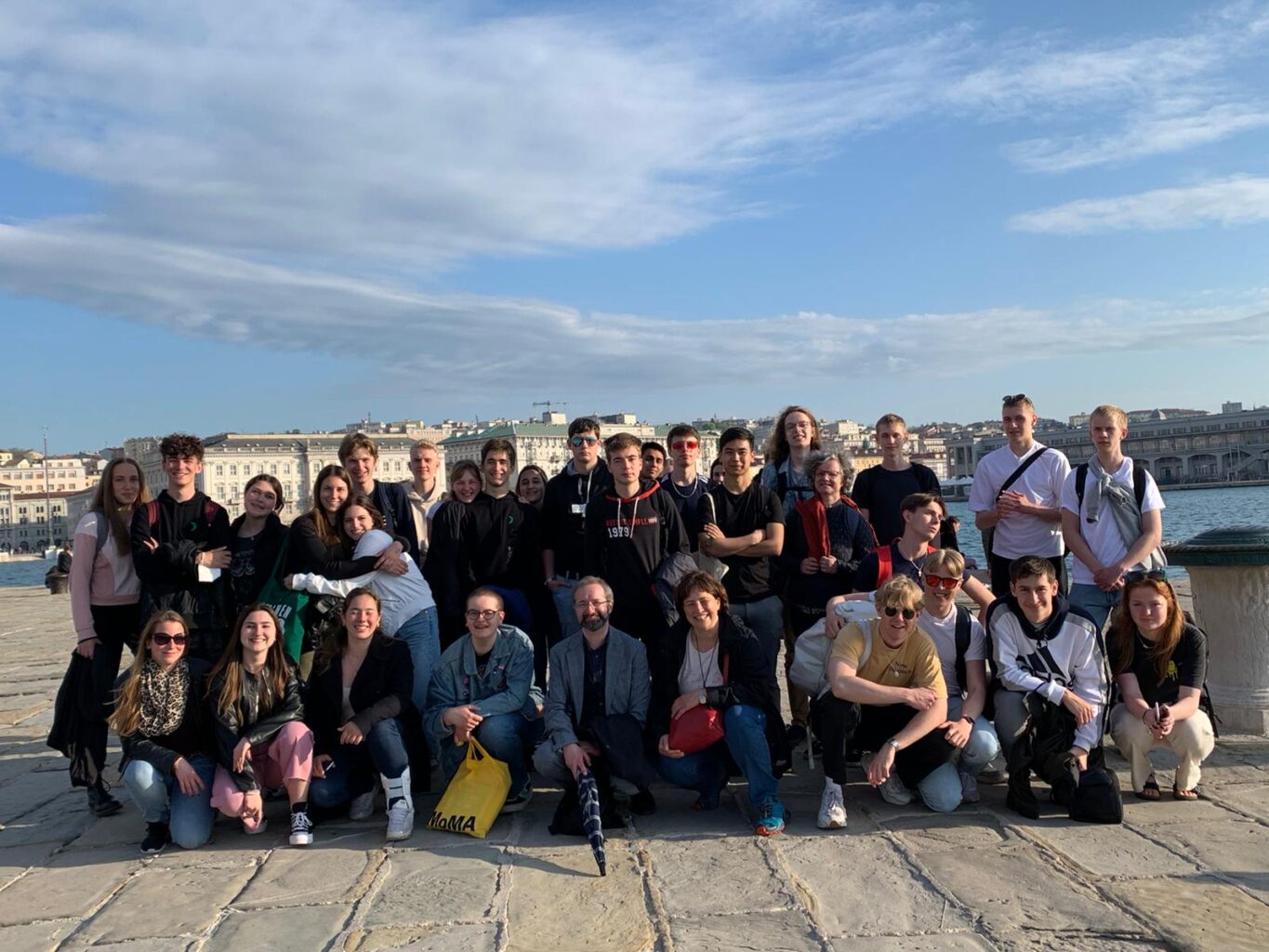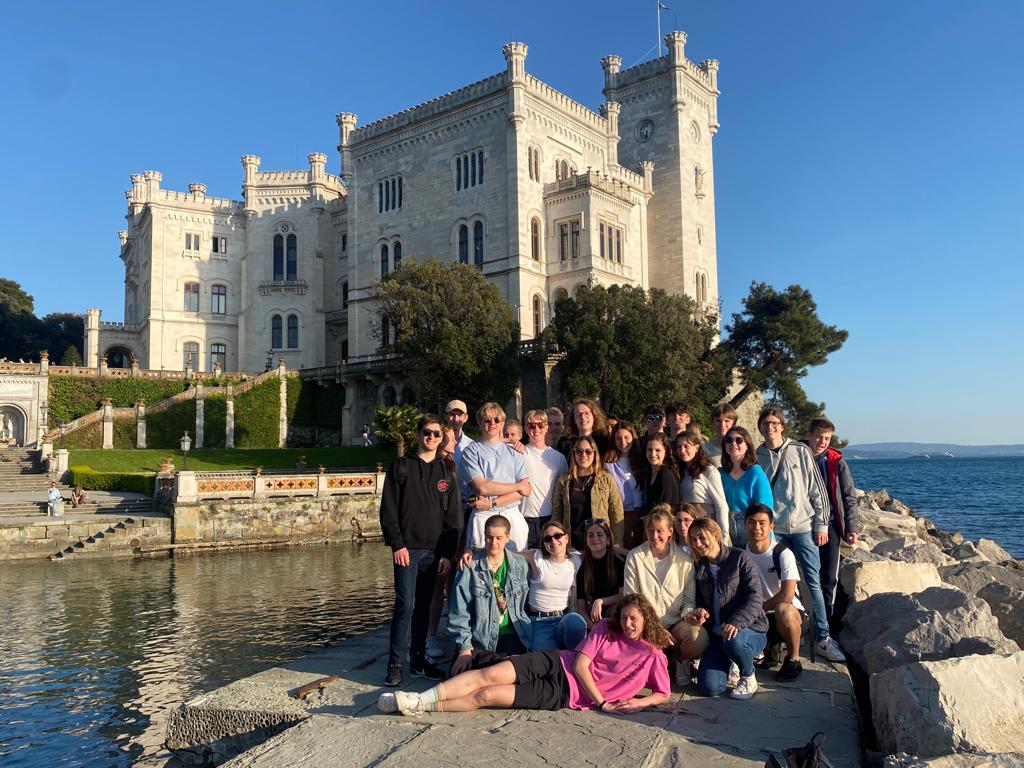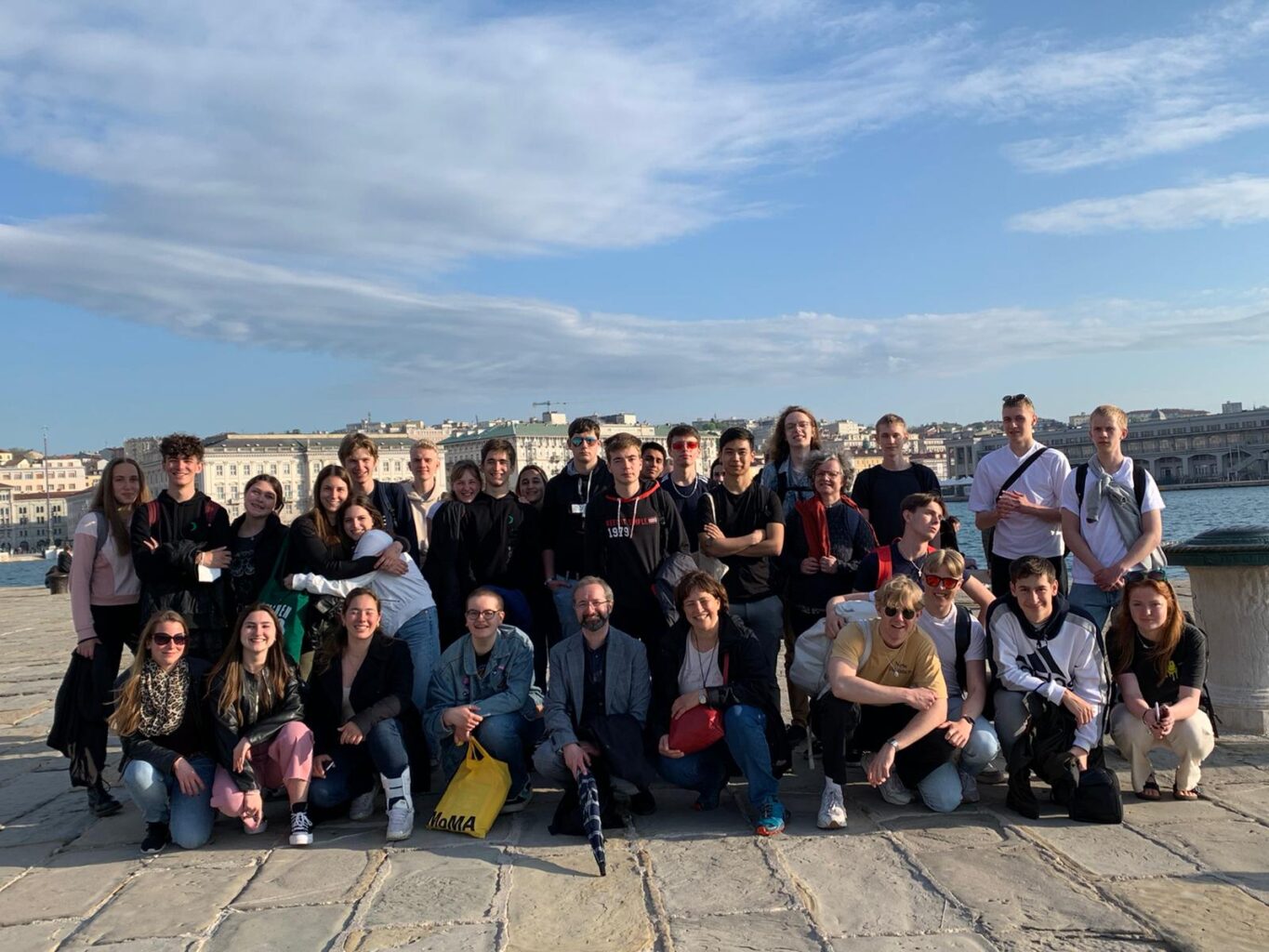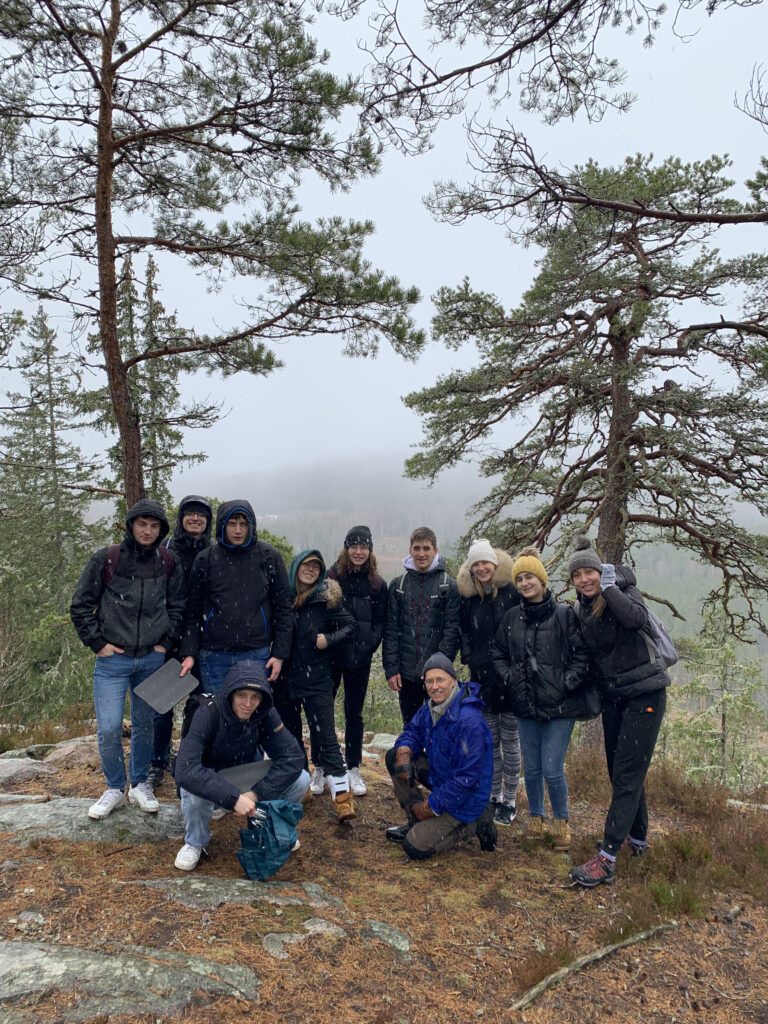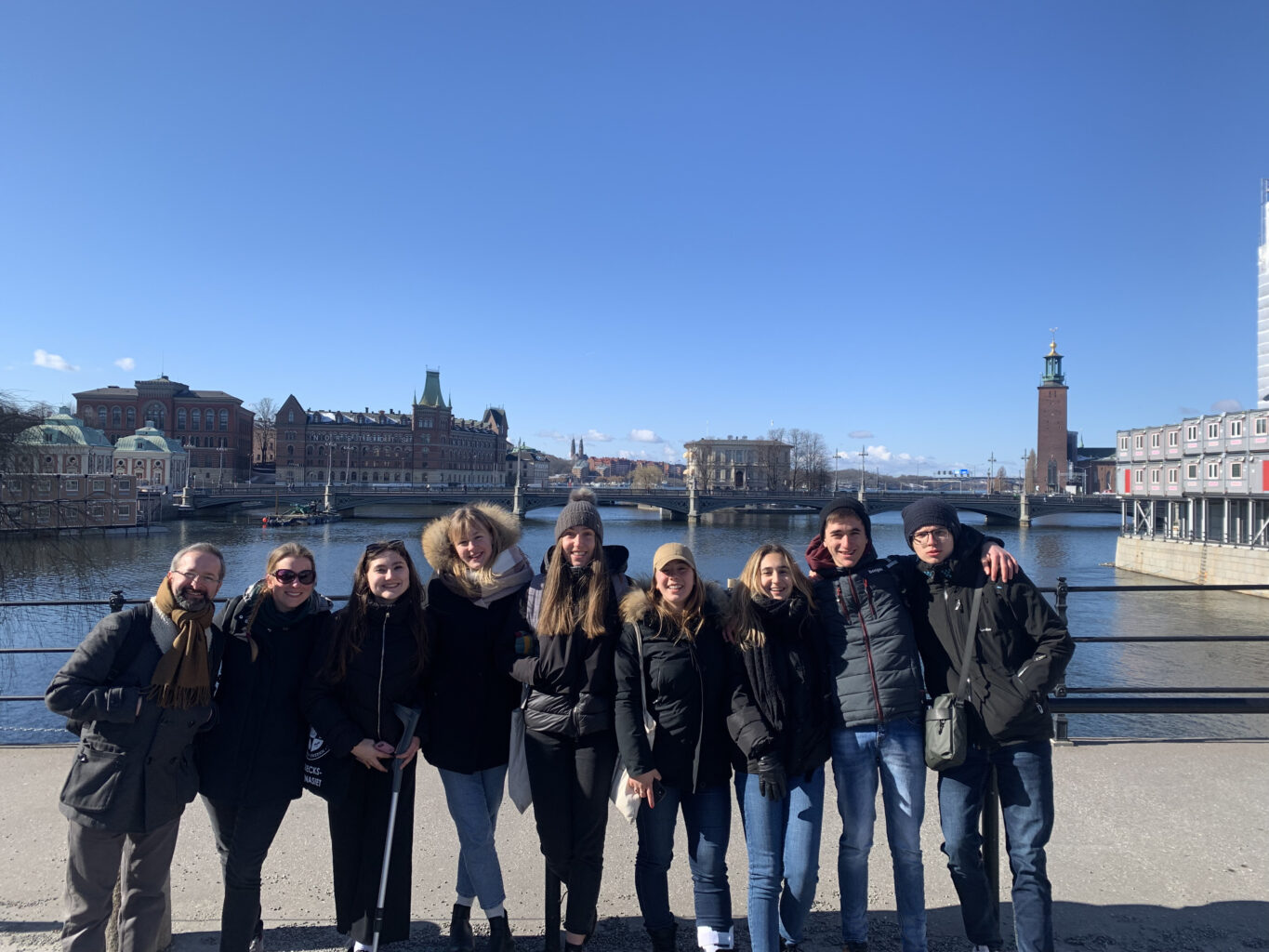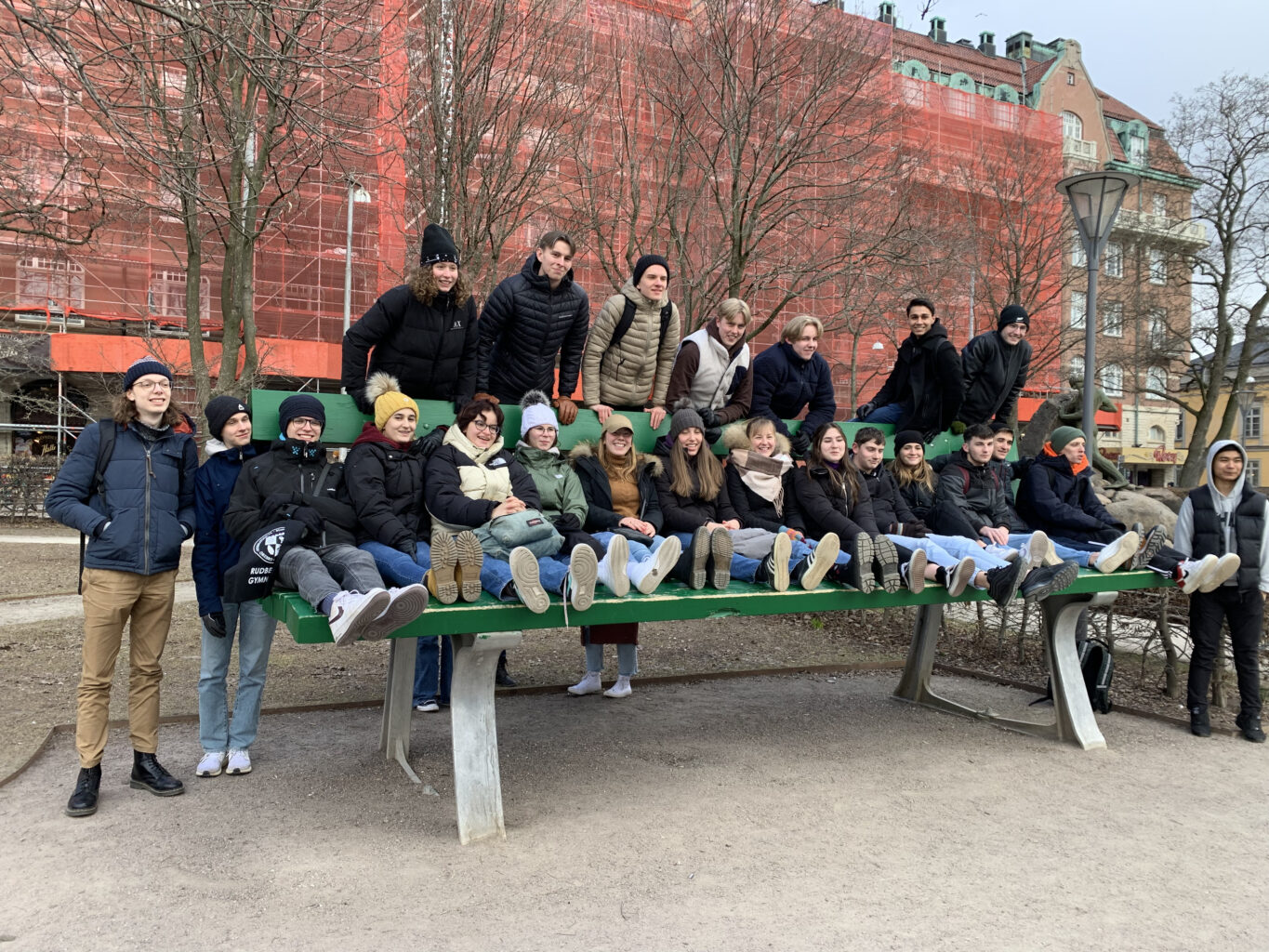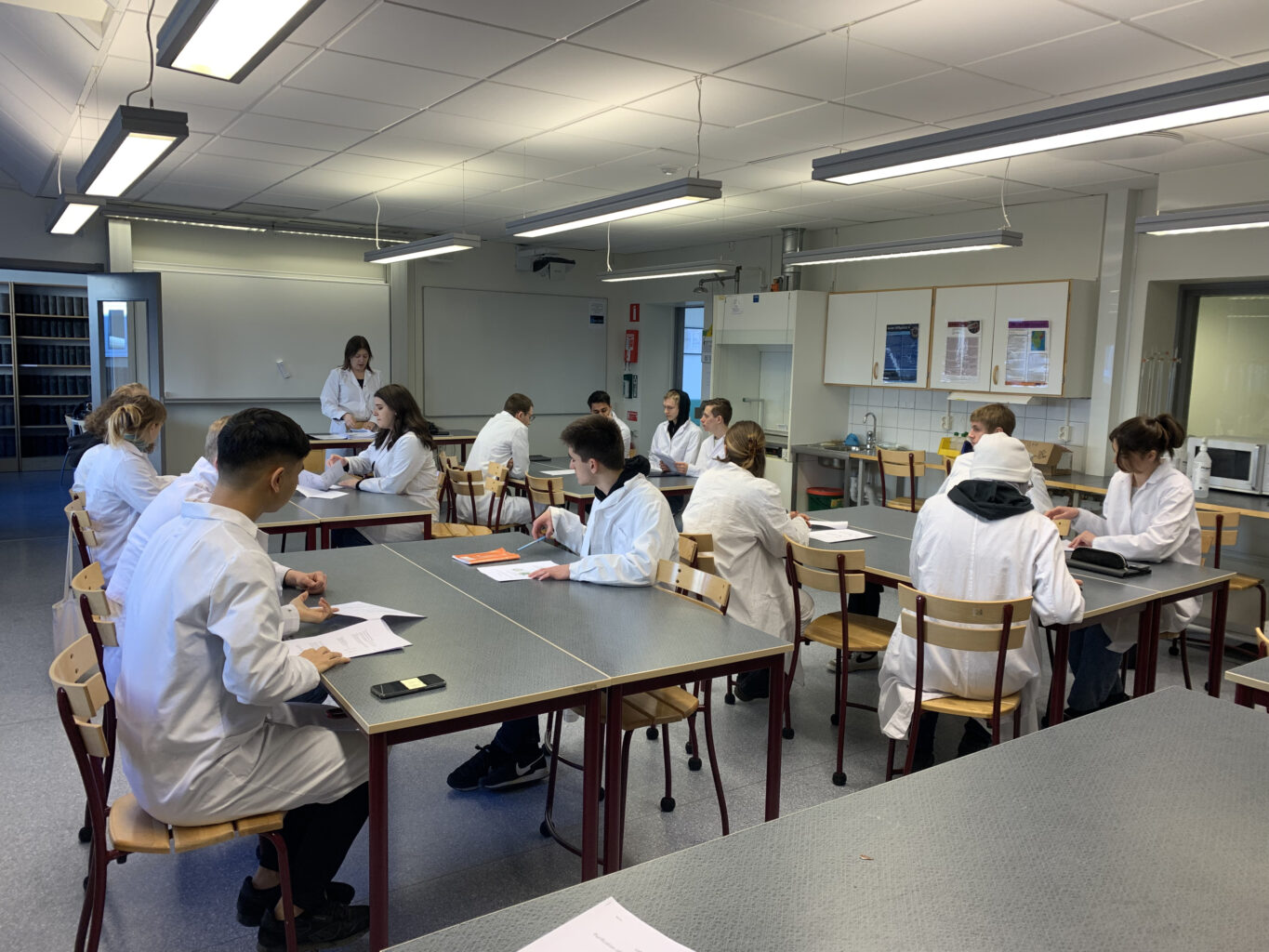Erasmus+ 2020-2022/3

2020-2022/23 Scents and Sights of Science: Biochemistry among Two Countries
With the new two-year project, we will continue our collaboration with the Rudbeksgymnasiet school in Örebro, Sweden. The goal of the project is to upgrade the teachings of Biology and Chemistry while improving general communication skills in foreign languages. Students will perform laboratory activities, which will be carried out in agreement with the Swedish school. The activities will pertain to environmental issues and entrepreneurship: students from both schools will get to know companies in which specific knowledge of chemistry and biology is particularly important.
On 18th of May 2021 the 3rd and 4th biochemistry classes have attended together with the Rudbecksgymnasiet students and other European high schools the virtual tour of the Embl (European Molecular Biology Lab), in Heidelberg. The students have learnt about the new methods in molecular biology and they got insights in the life of a researcher.
Essential oils and Karst aromatic herbs
(26 March – 1 April 2023)
Together with the students of the Rudbecksgymnasiet school we learnt about the Mediterranean aromatic herbs that are typical of the Karst area and the characteristics of essential oils.
We listened to the geology professor dr. Lenaz from the University of Trieste who spoke about the history of the Karst area. He explained the main characteristics of our territory and of our environment in which typical aromatic plants grow best.
The essential oils of lavender, rosemary, thyme and sage were then extracted in the laboratory with the steam distillation technique. We also tested the effect of these oils on bacteria: we tested their ability to destroy microbes in the air and their bacteriostatic ability directly on bacterial colonies. From our observations it follows that the most effective essential oil is thyme.
In the school laboratory we made extra virgin olive oil soaps with the essential oils of Karst plants and the Swedish guests could take them home as a fragrant souvenir.
The program also included a naturalistic walk along the sage path under Križ-Santa Croce and in the Val Rosandra nature reserve with the naturalist guide Nina Taha. Together we also visited many local attractions such as Miramare Castle, Škocjan Caves and Venice.
The forests of Örebro
(11 – 17 October 2022)
During our Erasmus+ visit to Rudbecksgymnasiet school in Örebro, we visited Skinnskatteberg School of Forest Sciences, where we sampled benthic invertebrates in the river and learned about other microorganisms found in the water. The broader topic of the exchange was forests and the forest world. In the school’s laboratories, together with our Swedish peers, we performed lignin extraction and DNA electrophoresis and PCR of various forest animals. The exchange also included several visits to research institutes such as the Grimsö Research Station, which tracks and monitors forest animals and operates within the Department of Ecology. The students also took part in laboratories at Örebro University, particularly in microbiology, forensic chemistry and toxicology, where they identified biological markers under the guidance of university researchers.
Comparative water analysis and analysis of mussels in the Adriatic Sea at TPK Sirena and in the Skinnskatteberg river courses
(September 2022)
In September, the biochemistry students of the last three years carried out field research at the TPK-CN Sirena. With the help of a multiparameter probe, they performed a series of measurements of the chemical and physical characteristics of the seawater. They collected several seawater and mussel samples, which were then analyzed in the school laboratory. The mussel Mytilus galloprovincialis, endemic in the Adriatic, is cultivated in the Adriatic Sea. Freshwater mussels of the Margaritifera species thrive in Sweden – and these two species the students tried to compare within the Erasmus+ project.
In the laboratory, in addition to the composition of the seawater, the students also inspected the contents of the mussel’s digestive tract and looked for the possible presence of microalgae that produce DSP toxins. Luckily we didn’t find any, which is certainly encouraging news.
Exchange in Trieste
(April 24 – April 30, 2022)
During the week from April 24 to April 30, we learned about coffee from different aspects with our Swedish peers: in the morning we performed coffee laboratory analyzes and extracted caffeine. In the afternoon we got to know the literary and cultural world of Trieste’s coffee houses and saw Trieste as a city of coffee. We visited the Primo Aroma roastery and walked down to the Miramar park and castle.
Exchange in Örebro
(March 29 – April 4, 2022)
From March 29 to April 5, 2022, the 5th and 4th grade students from the Chemistry, Materials and Biotechnology section took part in the exchange in Sweden, namely in the city of Örebro. Enthusiastic students got to know their peers from Rudbecksgymnasiet and their families, the city and its surroundings, and also saw the capital Stockholm. At school they performed laboratories for DNA extraction and analysis, purification of green fluorescent proteins and electrophoresis. Together they also visited the University of Örebro and its well-equipped laboratories. The students will certainly remember for a long time the bicycle tour of the city, the hike in nature, the relaxed Sunday with Swedish friends in the Escape Room, as well as the Swedish lessons and the presentation of local traditions, culture and food.
